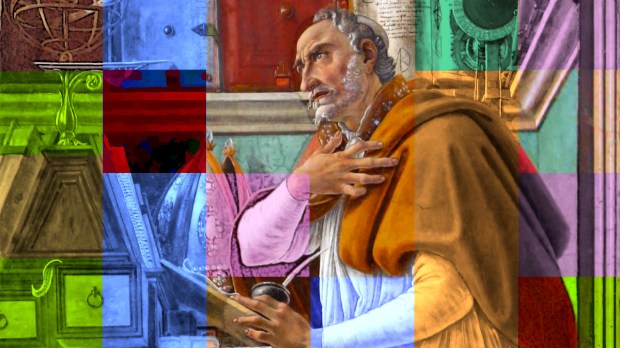My four-year-old daughter recently told me a long story about the time her sister forgot about some nachos in the oven and they caught on fire. She told the story animatedly in great detail, laughing and giggling. It seems that the story is, ahem, burned into her memory.
I thoroughly enjoyed her narration. Before she launched into it, though (apropos of nothing, I might add), I had no recollection of those events. It all came back to me as she talked but I clearly don’t remember it the same way she does.
Like her, though, I do have a smattering of extremely vivid memories from my youth. I remember secretly throwing away my vegetables in preschool and sneaking a popsicle. I remember the teacher catching me in the act and the sense of shame I felt. I remember going to the mall with my mother and looking at Halloween costumes, fascinated at how scary and cool they were. I wished I could have one. That same teacher happened by and stopped to say hello. I was awed seeing her outside of our classroom.
Many, many more of these vignettes rattle around in my head. The common thread that links them, I’m fairly sure, is that they are evocative for me. My parents or the teacher in question almost certainly don’t remember the events at all, however.

The gift of memory
Memory is a funny thing. It catches what it wants seemingly at random. We are each shaped by events that, to an outsider, seem insignificant. To us, though, memories are how our path through life has been shaped. They gesture towards the essence of personal identity.
Our memories remain with us, lingering in our consciousness. A stray piece of advice from an adult that, as a child, you took very seriously. The smell and feel of the first book you read as a teenager that really rattled your cage and got you thinking deeply (for me, it was Cormac McCarthy). A small, passing act of kindness received from another person that pried open an interior door in your heart to another world. Each memory, as fleeting and untamed as it is, breaks us free from the tyranny or the present moment, uniting our past, present, and even future. It is a precious gift.
Too important to forget
This is why I want to remember everything. It’s how I cherish that which is valuable. Life is too important for it to slip past unexamined and unremarked. It’s a great gift from God that our past remains available to us.
In my mind, I can smell the salt in the air from the years I lived on Cape Cod. I remember the taste of the French toast I nervously ate while we waited for my wife’s contractions to proceed enough to walk over to the hospital maternity ward. The feel of my grandfather’s large hand shaped by years of hard work, the sound and excitement of the rock shows I attended in small bars in my college town, the texture of the host in my hands the first time I celebrated a Traditional Latin Mass.
Remembering the good and the bad
I don’t value memory in order to imprison myself in the past. I’m not trying to retreat to a mythical youth or avoid my current life. It’s important to remember both the good and the bad. I remember the times I’ve put my foot in my mouth and embarrassed myself, the funerals I’ve attended, the parishes I’ve had to leave behind when I’ve been transferred. Parenting mistakes and difficult days at the office or days I’ve wasted in indulgent laziness — these are every bit as much a part of me as anything else.

A key to the interior
My meditations on memory have been formed by the writing of St. Augustine. In hisConfessions, he considers the miracle of memory in great depth, marveling, “The power of the memory is great, O Lord.”
Augustine teaches us that the memory is like a key that opens up a vast interior space, revealing that people are ever so much larger on the inside than we seem from the outside. We aren’t limited to only our physical bodies. Yes, we are subject to the flow of time and physical necessity, but the memory is a sign that we are made for more. We have a soul that transcends time.
Our recollection is a vast mental home in which “sky, land, and sea” are all available. In this interior home, Augustine writes, “I meet myself and recall what I am, what I have done.” We are complicated creatures, moving through time and somehow carrying it with us as we go.
Augustine went inside his memory to try to understand his relationship with God. He wanted to know why God made him and why it is we move through life seemingly captive to time but also transcending it. If nothing else, the memory turns us to inner vistas. We sanctify time, each and every moment. Each memory a treasure.

Why do memories linger?
We aren’t tourists simply passing through our days but having no part in the events we observe. The wonder of it all, as our experiences are internalized, reveals our place. Why does so much, for good or ill, linger in our memory? Why do my eyes grow damp when I think of my deceased grandfather? Why do I wax nostalgic when I see picture of my teenager when she was only a toddler? Why is there so much beauty in our daily experience – even the moments we take for granted – that it hurts?
I want to remember it all, the good and the bad, my part in it and what it reveals about my value and flaws. The memory will illuminate me whole and entire, or it won’t shine a light at all. Memories are still being created, but only if we pay attention. Otherwise, they slip past. Slow down. Take it in. Value it. Remember faces. Spend time wisely. You will carry these memories with you into eternity.
Humility and hope
In the end, I must admit that, in spite of my best efforts, I still forget quite a bit. But maybe it’s important to remember even the forgetfulness. There’s humility in the admission. There’s also hope. One day, by the grace of God, I will exit time and enter heavenly beatitude, a reality in which all of time is present and nothing is ever lost.



